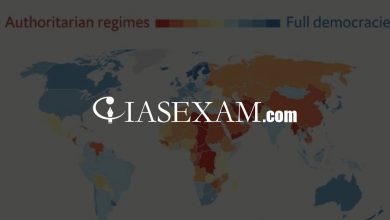United Nations World Economics and Prospectus Report 2020
GDP growth in India and few other large emerging countries may gain some momentum this year after the global economy recorded its lowest growth of 2.3 per cent in 2019 due to prolonged trade disputes, a UN study said on Thursday while lowering its current and next fiscal forecasts for the Indian economy. According to the United Nations World Economic Situation and Prospects (WESP) 2020, a growth rate of 2.5 per cent is possible in 2020, but a flare up of trade tensions, financial turmoil, or an escalation of geopolitical tensions could derail a recovery. In a downside scenario, global growth would slow to just 1.8 per cent this year, it added.
It lowered its GDP growth estimate for India to 5.7 per cent in the current fiscal (from 7.6 per cent forecast in WESP 2019) and lowered its forecast for the next fiscal to 6.6 per cent (from 7.4 per cent earlier). It has also forecast a growth rate of 6.3 per cent for the fiscal beginning in 2021. The report pegged India’s GDP growth rate for the previous fiscal at 6.8 per cent.
Highlights of the Report
- According to the UN study, one in five countries will see per capita income stagnate or decline this year, but listed India among few countries where the per capita GDP growth rate could exceed 4 per cent level in 2020.
- In the European Union, manufacturing will continue to be held back by global uncertainty, but this will be partially offset by steady growth in private consumption, allowing a modest rise in GDP growth from 1.4 per cent in 2019 to 1.6 per cent in 2020.
- Despite significant headwinds, East Asia remains the world’s fastest growing region and the largest contributor to global growth, as per the report.
- In China, GDP growth is projected to moderate gradually from 6.1 per cent in 2019 to 6.0 per cent in 2020 and 5.9 per cent in 2021, supported by more accommodative monetary and fiscal policies.
- Although progress has been achieved in global terms, the number of people living in extreme poverty has risen in several sub-Saharan African countries and in parts of Latin America and the Caribbean and Western Asia.
As the global economic balance is shifting from the EU, the US and other developed countries towards China, India and other developing countries, global economic decision-making power is shifting as well. Global cooperation mechanisms will need to recognize this shifting balance while continuing to allow the underrepresented to be heard.
A prolonged weakness in global economic activity may cause significant setbacks for sustainable development, including the goals to eradicate poverty and create decent jobs for all. At the same time, pervasive inequalities and the deepening climate crisis are fuelling growing discontent in many parts of the world.
SOURCE: Economic Times





.png)



